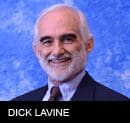UPDATE: Senator Robert Nichols (R – Jacksonville) announced a change to the proposal. The new proposal, which requires a constitutional amendment, would dedicate 50 percent of the revenue from the motor vehicle sales tax to highways in the following way: the first $2.5 billion would go to General Revenue, the next $2.5 billion would go to highways, and any additional revenue would be split 50/50 between General Revenue and highways. Senator Nichols will present the details of the bill at the hearing on February 25 at 8 a.m.
This week we’re looking at a number of possible tax policies lawmakers are considering and how they will impact Texans today, and in the future.
Part Two: Pitting Roads Against Other Needs
Roads are currently receiving a lot of attention because of years of deferred maintenance, and finding the funds to improve Texas’ roadways is a high priority. SB 5 proposes to dedicate a portion of the motor vehicle sales tax (all receipts from the tax above $2.5 billion per year, $5 billion per biennium) permanently to the State Highway Fund.
It’s true that Texas’ roads need work, and that we’ve deferred maintenance for much too long. But roads are just one among the many services that need attention. Permanently dedicating a portion of the motor vehicle sales tax to the State Highway Fund would reduce funding for the rest of the state’s programs by $4-6 billion per biennium. It would mean that regardless of what is happening in our state—a big recession, another Hurricane Ike—that highways would be prioritized over all other services.
While highways need attention right now, permanently prioritizing investments in roads over schools and other public investments locks away future options. Our schools, our public health programs, our community colleges, and our roads all need sustainable sources of revenue.

Ending “Diversions” Shortchanges Other Needs
Another proposal to increase the amount of funding available for roads is to end the “diversion” of gas tax revenue for the Department of Public Safety (DPS). The state constitution requires ¼ of the 20 cents per gallon motor fuels (gasoline and diesel) tax to go to the Available School Fund, and the remaining ¾ to go to the State Highway Fund. Lawmakers have previously used a portion of this revenue to fund the Department of Public Safety (DPS) to the tune of $1.2-1.7 billion per biennium.
Replacing the gasoline tax as a source of funding for DPS will reduce the amount of General Revenue that is currently funding other services. For perspective, $1.7 billion is equivalent to the entire General Revenue funding for the Department of Family and Protective Services in the 2016-17 proposed budget.
The Legislature already has several options to send more money to the State Highway Fund. With the approval of a constitutional amendment in 2014, half of revenue that in the past was set aside for transfer to the Economic Stabilization Fund (“Rainy Day Fund”) instead goes to the State Highway Fund. This means that in fiscal 2015, rather than making a $3.4 billion transfer to the Economic Stabilization Fund, only $1.7 billion went there, and $1.7 billion went to the Highway Fund. And at any time the Legislature can choose to spend General Revenue or funds from the Economic Stabilization Fund on highways, but instead the Legislature is proposing to cut taxes.
Texas has enough revenue to meet its needs, but we need a system that offers lawmakers flexibility to choose how to allocate all the available revenue to meet the needs of our growing population.
On Wednesday, February 25 starting at 8 a.m. the Senate Committee on Transportation will hear testimony on SB 5, which proposes to dedicate a fixed portion of the motor vehicle sales tax to the State Highway Fund. There is an opportunity to give public testimony, which will be limited to three minutes per person.
